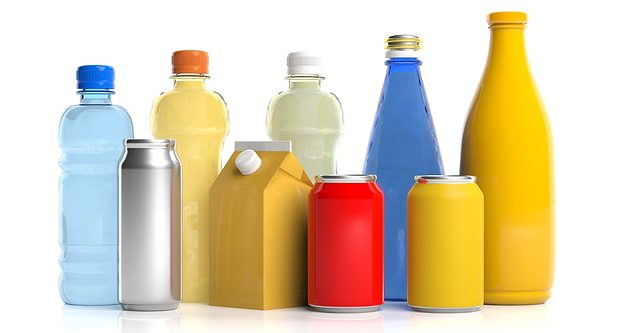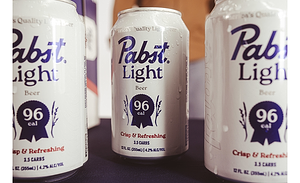The Best Beverage Packages of 2022
December 1, 2022
The Best Beverage Packages of 2022
December 1, 2022After the leaves have fallen and the seasonal pumpkins and jack-o-lanterns have seen better days, Americans are encouraged not to toss these gourds in the trash to prevent the release of methane gas. Municipalities often will conduct pumpkin smash events or farms and zoos will collect them for the animals. Conservationists also have sought to educate consumers on the ways to use these fruits in at-home composting efforts.
Much like the green efforts groups take with pumpkins and jack-o-lanterns, beverage manufacturers are taking a proactive approach with packaging innovations. As more studies highlight the effects of single-use packaging, brands owners are taking the steps to reduce or even eliminate some of these materials.
With Beverage Industry’s annual Best Packages of Year feature, the editors selected a collection of packaging releases that highlight the sustainable packaging efforts that beverage-makers are applying to their brands.
Bacardi & Co. Ltd.
Earlier this year, Hamilton, Bermuda-based Bacardi announced it is cutting approximately 140 tons of single-use plastic annually by removing plastic pourers from its bottles in the United States, Canada, Puerto Rico, Spain and Portugal.
The plastic non-refillable fitment (NRF) is commonplace throughout the spirits industry and currently is found in the neck of a number of the company’s brands, including BACARDÍ rum, MARTINI Fiero, BOMBAY SAPPHIRE gin and DEWAR’S White Label blended Scotch whisky.
The removal already is underway, and by early next year, all 1.75-liter bottles of BACARDÍ rum in the United States, Canada and Puerto Rico no longer will contain the plastic pourer, it says.
Rodolfo Nervi, vice president of global safety, quality and sustainability at Bacardi & Co. Ltd., explains that this move was important for the company, but also has been important to its consumers.
“We made this bold move because cutting plastic is undeniably the right thing to do, and our customers have reacted positively to our continued pioneering moves in sustainability,” he says. “Consumers expect brands to be taking every possible step to ensure a greener future, and at Bacardi, we are proud to live up to those expectations. We are answering their questions and explaining why we have removed the pourer ― to cut 140 tons of single-use plastic every year. Most importantly, we can assure them they will continue to enjoy exactly the same quality and taste from our entire portfolio of brands.”
Looking for a reprint of this article?
From high-res PDFs to custom plaques, order your copy today!

However, making a change like this was not an overnight decision, Nervi notes.
“It has taken many months of careful planning and conversations with customers to manage the transition,” he says. “Our supply chain team has done, and continues to do, incredible work to make these bold, important changes happen as we strive to achieve our goal to be the most environmentally responsible global spirits company.”
The steps to remove the plastic pourers from bottles is part of the company’s goal to be 100% plastic-free by 2030. Nervi highlights that currently the company is reviewing the ways in which it is using plastic and what steps can be taken to remove or replace it with a sustainable alternative.
“At Bacardi, we are committed to doing the right thing for our customers, consumers and the planet to build a brighter and greener future for all,” he says. “As a family-owned company, doing the right thing is in our DNA and therefore making sustainable choices for our packaging and across our entire business is an absolute priority for us.”
buzzbox
This past summer, buzzbox premium cocktails, Indio, Calif., announced new packaging across its portfolio of ready-to-drink, all natural ingredient cocktails. As part of the design, the plastic straw was replaced with the Dreamcap, Tetra Pak’s resealable screw cap made from renewable materials.
“Our plan was always to move from the original straw pack to Tetra Pak’s Prisma aseptic cartons with the resealable DreamCap,” says Eric Hundelt, vice president of marketing for buzzbox. “Not only is the DreamCap packaging more sustainable and better for the environment, but they are also more convenient, portable and easier to serve.”
Hundelt adds that this new screw top closure has been a hit with consumers. “It’s easier to drink out of as well as pouring over ice,” he says. “They like our lightweight and shatter proof packaging, and they tell us our new look stands out versus the competitive cans and bottles.”

To support the transition, buzzbox worked closely with Tetra Pak to ensure that the inventory and materials to accommodate the change were secure. Hundelt adds that because the paper is printed domestically, its availability is easily accessible.
As sustainable packaging gains more traction, Hundelt points to paperboard cartons as a viable solution.
“If we really want to build sustainable options, then we need to build solutions that go beyond small changes ― we must be innovative,” he says. “Buzzbox is building its entire product line on the most sustainable eco-friendly packaging solution available today. We are leading the way into the future.”
The sustainable elements were not the only update to buzzbox’s packaging. Bold new colors and vibrant graphics that prominently showcase the cocktail name followed by the featured spirit, such as small batch rum or premium vodka, were incorporated.
“We are extremely proud of our new packaging and we’re seeing the new size and look has improved brand visibility, shelf presence and customer interest,” Hundelt says. “The RTD space is very crowded and the bright white cartons with bold colors and illustrations help buzzbox stand out from competitors. Additionally, the new packaging clearly communicates the brand’s unique selling points ― top shelf spirits, real fruit juices, all-natural ingredients, and the world’s most eco-friendly packaging.”
Coors Light – Molson Coors Beverage Co.
In the earlier part of 2022, Coors Light announced it will eliminate plastic rings from packaging globally, where Molson Coors owns brewing operations. To support the move to more sustainable packaging, Molson Coors Beverage Co., Chicago, will invest $85 million, enabling Coors Light to begin the transition to fully recyclable and sustainably sourced cardboard-wrap carriers.
The Molson Coors investment will upgrade packaging machinery, which also will allow the company’s entire North American portfolio of brands to advance to cardboard wrap carriers by the end of 2025, it says. In total, the move by Molson Coors will save 1.7 million pounds of plastic waste annually. In 2021, Molson Coors removed plastic rings across all major brands sold in the United Kingdom, including Coors and Carling, and transitioned to recyclable cardboard sleeves. Molson Coors in Canada moved to more sustainable plastic rings in 2021 as an initial step, and as part of the announcement commits to eliminate plastic rings entirely.
A representative for Coors Light notes that it has taken a lot of work to get where it is today.

“First, Molson Coors made an $85 million capital investment to make this shift happen,” the representative says. “The investment allows us to update and install new packaging machinery across our breweries in North America. We also had to test different package formats within our supply chain network to ensure they could deliver a strong customer and consumer experience.”
The company is proud of its efforts to transition from plastic six-pack rings not just for the Coors Light brand, but the entire Molson Coors portfolio.
“The installation and transition processes are currently under way, and all Molson Coors brands will be fully transitioned by the end of 2025,” the representative says. “When it’s all said and done, this transition will eliminate 1.7 million pounds of plastic waste annually. This shift is a huge step toward delivering against Molson Coors goal of ensuring our packaging is 100% reusable, recyclable or compostable, and consumer-facing plastic packaging is made from at least 30% recycled content by the end of 2025.”
The initial transition and the upcoming transition has been met with a positive response, the company notes.
“The response from consumers and customers alike has been overwhelmingly positive. Since the announcement in March, based on our tracking with YouGov, Coors Light has moved from the fourth most sustainable beer brand in consumers’ eyes, to the first, tied with a competitor who previously held this position,” the representative says. “Our beer distributor partners are also investing in more sustainable practices, so they appreciate the leadership from Molson Coors, and consumers have continued to share positive feedback about our move to more sustainable packaging.”
Molson Coors recognizes the impact that single-use plastic has on the environment and remains committed to helping to change that.
“We want to be the change we see in the world, so that means looking at our own processes and deciding what we can do to make a meaningful difference,” the representative says. “For us, the next important step was making our packaging more sustainable. Sustainability lives at the center of our culture. From an internal perspective, we know that employees want to work for a purpose-driven company that stands up for values that aligns with theirs.
“Externally, we see consumers increasingly care that companies act in a socially responsible way, whether it be through sustainability actions, community involvement or desirable employment practices,” the representative continues. “They vote with their dollars and are choosing to purchase more from more responsible and sustainable companies. Investors are also asking more about our commitments since they see a direct relationship between sustainable management and higher financial returns in the long-term and we couldn’t agree more with all our stakeholders. We truly believe sustainability is a driver of how we aim to be first choice for consumers and customers.”
DASANI and Sprite – The Coca-Cola Co.
Two of the biggest brands in North America for The Coca-Cola Co., Atlanta, are taking major steps to support a circular economy for plastic packaging. DASANI is rolling out bottles made from 100% recycled PET plastic (excluding caps and labels), and Sprite is transitioning from green to clear plastic to increase the material’s likelihood of being remade into new beverage bottles.
Beginning this summer, the majority of DASANI bottles in the United States — including 20-ounce, 1.5-liter singles as well as 10- and 12-ounce multipacks — now are offered in 100% recycled plastic. In Canada, all DASANI bottles are available in recycled PET plastic.
“The shift supports both DASANI’s pledge to remove the equivalent of two billion virgin plastic bottles from production by 2027 compared to 2021 levels and the company’s World Without Waste goal to use at least 50% recycled material in its bottles and cans by 2030,” a representative for The Coca-Cola Co. says.

Beginning back in August, Sprite shifted all plastic PET packaging from its signature green color to clear. Although green PET is recyclable, the recycled material is more often converted into single-use items like clothing and carpeting that cannot be recycled into new PET bottles, according to the company. During the sorting process, green and other colored PET is separated from clear material to avoid discoloring recycled food-grade packaging required to make new PET bottles, it adds.
“This summer's full-scale launch followed a successful launch of 100% recycled plastic bottles in New York, California and Texas in 2021,” the representative explains. “The earlier launch helped the Coca-Cola system identify the best-quality sources of recycled PET (rPET) and fine-tune production processes needed to make 100% recycled plastic bottles.”
From a supply chain perspective, the company highlights that many steps were taken to support the switch.
“We started by doing research on resin qualifications in order to identify the correct look for DASANI,” a representative says. “Then, we had to identify and build relationships with suppliers that had qualified resins. Finally, we had to align our bottling network to ensure a smooth transition.”
These efforts have proven popular among partners as well as consumers, the company notes.
“The response so far from both customers and consumers has been positive,” the representative says. “While we don’t have data on the launch yet, we can share that customers have been eager for the country-wide rollout of 100% rPET packaging to meet consumer demand for sustainable packaging solutions.
“In fact, consumers are increasingly changing their consumption habits with sustainability in mind and a majority of consumers make buying decisions with sustainability in mind. Furthermore, having environmental initiatives in place ― like recyclable or reusable packaging ― positively influences retailer selection,” the representative continues, citing Kantar Worldpanel Research.
The Coca-Cola Co. is planning to make more sustainably focused packaging moves in the months to come. For instance, Mello Yello, Seagram’s and Fresca are in the process of transitioning to clear plastic. The representative notes that many markets have completed the transition, but the company is processing through the inventory it already had on hand, which will take several months.
Going forward, sustainable packaging efforts will continue to be part of The Coca-Cola Co.’s future as it supports its World Without Waste initiative.
“Sustainability is at the heart of everything we do and is engrained in our purpose: to refresh the world and make a difference,” the representative says. “We not only look to create products that people love, but we also strive to do so in sustainable ways that better the future of our lives, communities and planet.
“That’s one reason why we were thrilled to roll out 100% rPET in the United States and Canada this year,” the representative continues. “This transformations helps drive a circular economy for our packaging, the fundamental principle behind our sustainable packaging initiative, World Without Waste. We believe developing a circular economy — an economic system aimed at eliminating waste through the continual use of existing, valuable resources — is the most impactful way to address waste issues created by packaging.”
FIJI Water – The Wonderful Co.
This summer, FIJI Water, a brand of The Wonderful Co., Los Angeles, announced it transitioned its 500- and 330-ml bottles to 100% recycled plastic (rPET) in the United States. The move replaces almost 65% of FIJI Water’s bottle volume in the United States with recycled material, it says. The company is committed to continue shifting its entire portfolio of bottle sizes to rPET by 2025.
Clarence Chia, senior vice president of marketing at FIJI Water, notes that the packaged water brand recognizes its responsibility to support a more sustainable future.
“The response from both retail customers and consumers has been overwhelmingly positive,” says Clarence Chia, senior vice president of marketing at FIJI Water. “At FIJI Water, we know how precious our natural resources are. Sourced from nature, we have a responsibility to help preserve and protect that source. Our customers and consumers understand that our move to 100% recycled plastic is a substantial step in reducing our environmental impact.”
Chia explains that when making this transition, the company knew it was a marathon and not a sprint. This meant that it needed to approach the project “in a meaningful manner to have a long-term solution and a lasting environmental impact.”

“That started with partnering with our sourcing teams around the globe to ensure the raw material supply met our quality standards and was available in the quantity we needed to commit to rolling out our best-selling SKUs in 100% rPET,” she explains. “Although the cost of recycled plastic is more expensive than virgin plastic, it’s an investment we knew we needed to make both in the materials and the infrastructure of our manufacturing facility. Our dedication to the strategy and sourcing at the onset allowed us to have a successful transition that met our demand.”
The switch to rPET not only reduces plastic waste, but also can reduce carbon dioxide emissions in the process, with some studies showing that rPET can result in up to a 79% reduction in carbon emissions when compared with new material, the company says.
“In using recycled plastic, we breathe new life into existing materials and reduce our overall CO2 emissions while maintaining FIJI Water’s same great taste, look and quality that consumers come to expect from Earth’s Finest Water,” Chia says.
Chia notes that the company will continue to set ambitious targets and invest in the materials and equipment to support more sustainable operations.
“This shift to rPET and a more sustainable future complements the work that we are doing on the ground in Fiji,” she says. “Through the FIJI Water Foundation and a partnership with Conservation International, we work to preserve and protect the Sovi Basin, Fiji’s most important forest ecosystem and the largest remaining lowland rainforest. In addition, FIJI Water has invested $2.5 million on energy efficiency initiatives on the Fijian islands, which includes the use of microturbine energy generation and adopting the low-sulfur fuel standard for all shipping, dramatically decreasing sulfur oxide emissions.”
FIJI Water’s parent company, The Wonderful Co., and its owners, Stewart and Lynda Resnick, have set the tone for environmental stewardship of the brand as they invested more than $1.3 billion toward environmental sustainability initiatives.
“This billion-dollar commitment includes the unprecedented $750 million gift from co-owners, Stewart and Lynda Resnick to Caltech in support of the school’s environmental sustainability research,” Chia says. “A portion of the research will focus on decomposable plastics, along with tackling issues of water, energy, food, and waste in a world confronting rapid climate change. Additionally, The Wonderful Co. joined RE100, a global initiative made up of some of the world’s biggest companies, which have all committed to using 100% renewable energy.”









